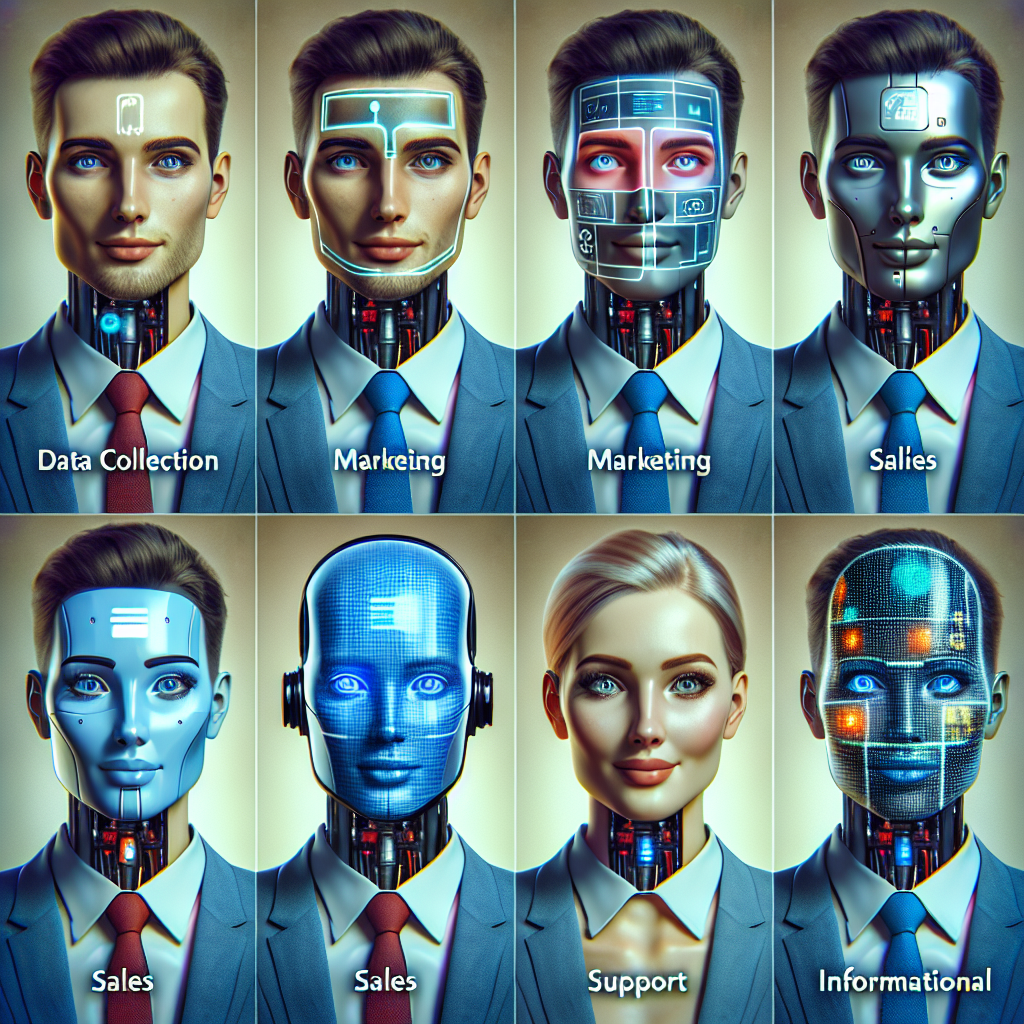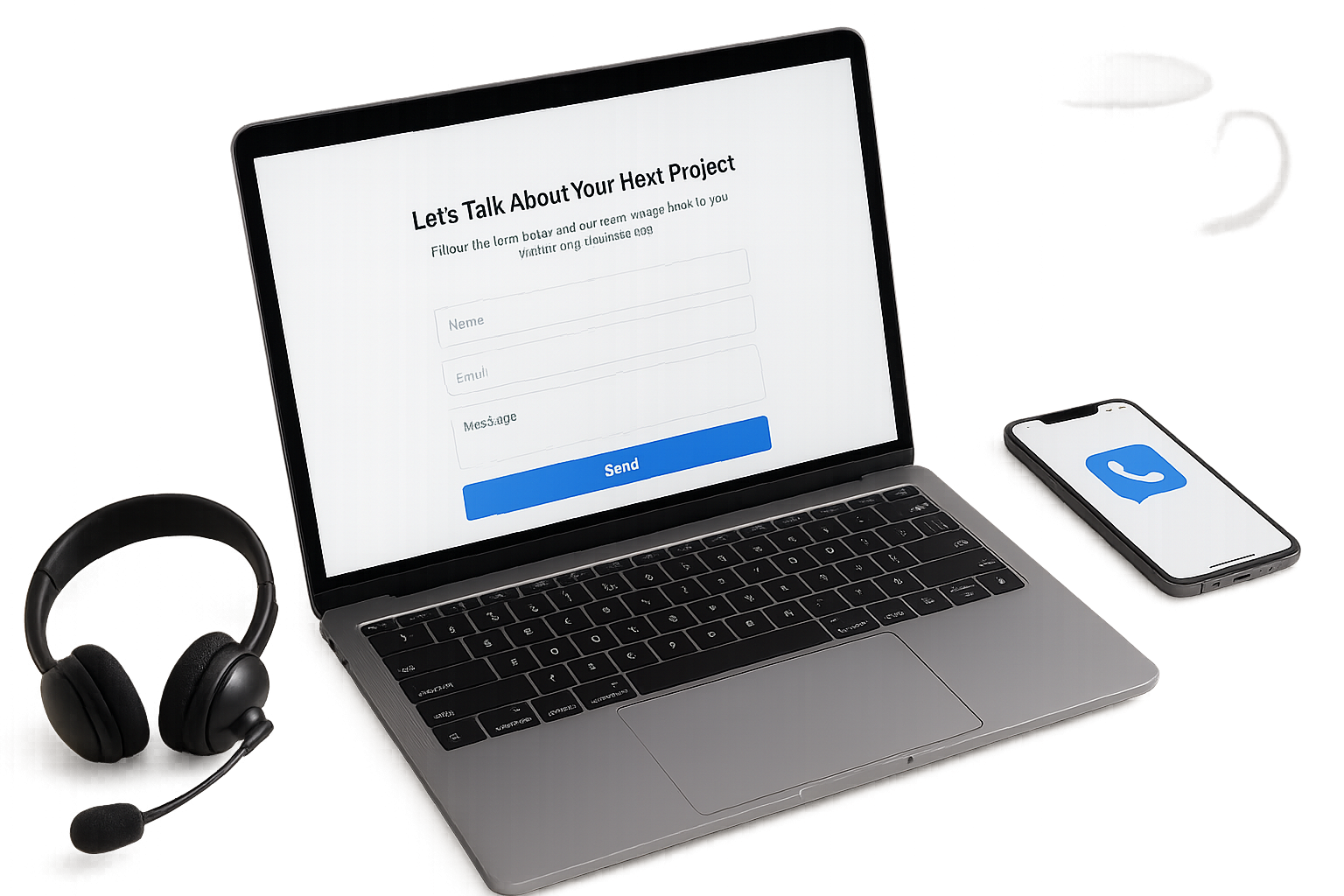Explore the Types of Chatbots for Businesses and Discover How They Help Increase Sales and Solve Key Tasks

How Does a Chatbot for Business Work? Unraveling the Functions and Benefits

Curious about how does a chatbot for business work? ⭐ Youre not alone! Businesses around the world are jumping on the chatbot bandwagon to streamline operations and enhance customer interaction. Let’s break it down in simple terms.
Understanding Chatbots: What Are They?
At its core, a chatbot is a software program designed to simulate conversation with human users, especially over the Internet. Think of it as your virtual assistant available 24/7. From customer support to sales, chatbots help businesses provide quick and efficient responses, ultimately improving service quality.
How Do Chatbots Function?
- ⭐️ Natural Language Processing (NLP): Chatbots utilize NLP to understand user queries. This technology allows them to interpret and respond appropriately, making interactions feel natural.
- ⭐ User Input: Users can type or speak their questions, and the chatbot will analyze that input based on vast databases and learning algorithms.
- ⭐ Learning Capabilities: Over time, chatbots learn from interactions, becoming more proficient at resolving queries and enhancing customer experience.
| Chatbot Features | Benefits |
| 24/7 Availability | Increased customer satisfaction |
| Quick Response Times | Enhanced efficiency |
| Data Collection | Better insights for decision-making |
| Multi-language Support | Wider reach |
| Cost Efficiency | Reduced operational costs |
| Seamless Integration | Easy framework for businesses |
| Customized Experiences | Increased customer loyalty |
| Lead generation | Higher conversion rates |
| Scalability | Business growth support |
| Improves Branding | Creates a cohesive brand image |
What Business Tasks Does a Chatbot Solve?
Now, let’s talk about the nitty-gritty: what business tasks does a chatbot solve? Whether chatting with customers or handling internal inquiries, a chatbots impact is substantial. For instance:
- ⭐ Customer Support: A restaurant could use a chatbot to manage reservations and answer FAQs, allowing staff to focus on in-person customer service.
- ⭐ Sales Transactions: Online stores can deploy chatbots to assist with purchases and curb cart abandonment, significantly boosting sales.
- ⭐ Appointment Scheduling: Medical offices find chatbots invaluable for booking and reminding patients about appointments.
With chatbots on your side, youll also find out that how much does a bot for business cost is often lower than expected, averaging around €5000. The investment pays for itself through efficiency gains and enhanced customer interactions.
Real-Life Examples
Take the case of an e-commerce client, “Style Boutique.” They implemented a chatbot and reported a staggering 30% increase in sales within just three months. The bot interacted with over 10,000 customers, providing personalized shopping experiences that led to significant upselling.
Client Story: Manufacturing Insights
Another story comes from “TechGadgets Ltd.” They used a chatbot to manage technical queries and scheduling maintenance. Their customer service resolution time was reduced by 50%. With reduced downtime, the company saved thousands of euros in operational costs.
How Can Businesses Use Chatbots to Increase Sales?
Integrating chatbots strategically into your business can substantially lift your profits. Here’s how:
- ⭐ Targeted Promotions: Use chatbots to inform customers about ongoing sales or personalized offers based on their purchase history.
- ⭐ Collect Customer Feedback: Earn valuable insights by asking customers about their preferences during chats.
- ⭐ Track Analytics: Monitor interactions to continually refine your marketing strategies based on real-time data.
The statistics are compelling as well: businesses that utilize chatbots increase conversion rates by an average of 30%! ⭐
Ready to Get Started?
Imagine the growth and efficiency waiting for your business. With over 20 years of experience, our professional specialists at nexrilo.com are here to help you navigate the world of chatbots tailored specifically to your needs. Don’t hesitate to reach out to Ecaterina at [email protected]. Let’s explore the opportunities together!
Frequently Asked Questions
- What is the purpose of bots? Bots aim to automate tasks, improve efficiency, and enhance user experience through interactive conversations.
- What types of chatbots are there for business? Main types include rule-based chatbots, AI-driven chatbots, and hybrid bots for more complex needs.
- What business tasks does a chatbot solve? Chatbots handle customer support, sales queries, and appointment bookings.
- How does a chatbot help a business? Chatbots streamline operations, decrease response time, and improve customer satisfaction.
- How to use chatbots for business? Integrate chatbot technology on your website or social media to engage customers proactively.
- How can businesses use chatbots to increase sales? By using targeted marketing, facilitating easy transactions, and collecting customer feedback.
- How much does a bot for business cost? Average costs range from €5000 and can vary based on complexity and features.
- Do chatbots need human supervision? Yes, while chatbots operate independently, human oversight ensures quality interactions.
- Can chatbots integrate with existing software? Most modern chatbots can seamlessly integrate with CRM and other business systems for enhanced productivity.
- What platforms support chatbot deployment? Chatbots can be implemented on websites, Facebook Messenger, WhatsApp, and other major communication platforms.
What Business Tasks Does a Chatbot Solve? Understanding the Impact on Your Operations

Are you wondering what business tasks does a chatbot solve? You’re in the right place! Chatbots are more than just trendy tech; they’re powerful tools that can help your business operate more efficiently. Let’s dive into how chatbots tackle various tasks across industries, improving operations while saving time and resources.
1. Streamlining Customer Support
One of the biggest gains from implementing a chatbot is in customer support. Imagine you run a retail business where customers frequently ask about product availability, returns, or shipping details. A chatbot can handle these inquiries instantly, reducing wait times and ensuring customers receive prompt assistance. ⭐
- ⭐ Reduced Response Time: Chatbots provide immediate answers, improving customer satisfaction.
- ⭐ 24/7 Availability: Customers can receive assistance any time of the day or night, making your business more accessible.
A real-world example is “Gadget World,” a tech store that saw a 40% reduction in support queries after launching their chatbot. This allowed staff to focus on complex customer needs, enhancing the overall service quality.
2. Automating Sales Processes
Have you ever faced the challenge of abandoned shopping carts? Chatbots can significantly mitigate this issue. By engaging with users during the checkout process, they can remind customers about their unpurchased items, provide personalized offers, and guide them through the purchase.
- ⭐ Upselling and Cross-selling: Chatbots can suggest related products based on customer behavior, increasing average order value.
- ⭐ Lead Generation: By capturing potential customer information, chatbots help you build valuable leads for follow-up.
Consider the success of “Fashion Hub,” which implemented a chatbot that subsequently increased conversion rates by 25%. Customers appreciated the personalized shopping experience, leading to higher customer loyalty.
3. Improving Internal Task Management
Chatbots don’t just benefit external communication; they can also enhance your internal operations. For example, consider a scenario in an HR department. Chatbots can answer common questions about company policies, process vacation requests, or schedule interviews, allowing HR personnel to focus on strategic decisions.
- ⭐ Appointment Scheduling: Streamlining calendar management helps minimize scheduling conflicts.
- ⭐ HR Repetitive Tasks: Automating onboarding processes can speed up hiring while keeping new employees informed.
“Tech Solutions” saw a marked improvement in HR efficiency with their chatbot, cutting down response times for employee inquiries by 60%. This freed up HR resources, allowing them to engage in more meaningful performance assessments.
4. Collecting Data and Analyzing Insights
Chatbots are excellent at gathering data that can drive business insights. They can track customer interactions, preferences, and behaviors, which can be invaluable for marketing strategies.
- ⭐ Feedback Collection: Chatbots can initiate surveys post-purchase to gather customer feedback effortlessly.
- ⭐ Behavioral Insights: Observing user engagement trends helps in refining products and services.
For instance, “Home Essentials” utilized their chatbot to gather product satisfaction data. This insight led to a more targeted marketing approach, increasing customer retention rates by 30%!
5. Operational Cost Reduction
One of the standout benefits of implementing chatbots is the potential for significant cost savings. By automating routine tasks and reducing the workload on human employees, chatbots help lower operational costs.
- ⭐ Decrease in Labor Costs: With reduced need for customer service representatives, businesses can allocate resources more efficiently.
- ⭐ Less Training Resources Required: The automation aspect means less time spent on training staff for repetitive queries.
A case study from a logistics company revealed they saved €100,000 annually after deploying a chatbot that managed queries about order statuses and delivery times—operations that previously required a full-time support team!
6. Facilitating Seamless Integration
The beauty of modern chatbots lies in their ability to integrate smoothly with various platforms, such as your CRM and social media. This seamless connection enhances the flow of information across different departments.
- ⭐ Better Coordination: Syncing customer data ensures that all teams are informed and up-to-date.
- ⭐ Strong Multi-platform Presence: Chatbots can operate across multiple channels, from websites to social media, providing unified communication.
For example, “Beverage Co.” launched a chatbot that integrated with their CRM, creating a single view of customer interactions. This visibility improved team coordination and allowed for personalized follow-ups, leading to a 15% revenue increase over just six months.
7. Enhancing Marketing Campaigns
Lastly, chatbots can assist in executing and analyzing marketing campaigns. They can provide personalized messaging based on user profiles, engaging users effectively and driving sales.
- ⭐ Personalized Marketing: Chatbots deliver tailored content, promotional offers, and reminders based on individual customer preferences.
- ⭐ Campaign Tracking: They can analyze engagement rates, helping businesses refine their marketing strategies in real time.
When “Travel Agency XYZ” used a chatbot for their promotional campaigns, they reported a whopping 50% increase in bookings after tailoring travel packages based on customer inquiries handled by the bot.
Ready to Transform Your Operations?
Embracing chatbots means adapting to the future of business operations. With a significant impact on efficiency and customer satisfaction, it’s an investment worth making. At nexrilo.com, our professional team can guide you in integrating chatbots tailored to your specific needs. Contact us at [email protected] to explore how we can optimize your business processes today!
Frequently Asked Questions
- How does a chatbot improve customer service? By providing immediate responses and handling routine queries, chatbots enhance the customer experience.
- Can chatbots automate sales? Yes, chatbots can guide users through the purchase process and reduce cart abandonment rates.
- What types of tasks can chatbots assist with internally? They can help with HR inquiries, appointment scheduling, and various administrative duties.
- How can chatbots gather customer feedback? Chatbots can ask customers to take brief surveys or rate their purchases instantly.
- What are the cost savings associated with chatbots? Businesses can save on labor costs and reduce the need for extensive employee training.
- How do chatbots integrate with existing systems? Modern chatbots can connect with CRM, email, and social media platforms to improve data flow.
- Can chatbots enhance marketing campaigns? Absolutely! They can deliver personalized messages and track user engagement.
- How do chatbots assist during peak business hours? Chatbots relieve the pressure on customer service teams, providing immediate assistance at high volumes.
- What industries benefit most from chatbots? Retail, healthcare, logistics, and many others find significant value in chatbot integration.
- Are chatbots effective for all business sizes? Yes, chatbots are scalable solutions suitable for small to large organizations.
Fill out the form below and our team will reach out within one business day
